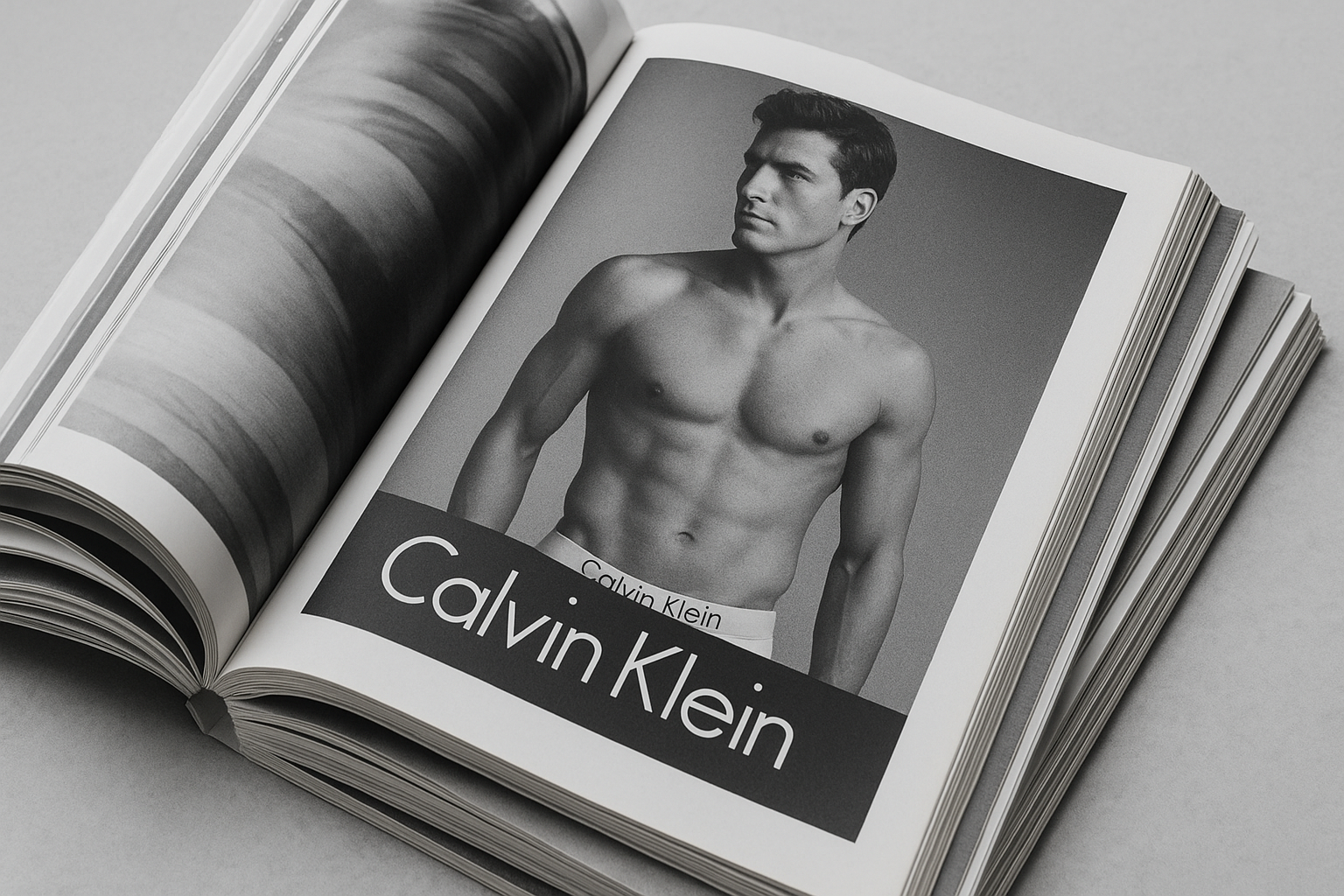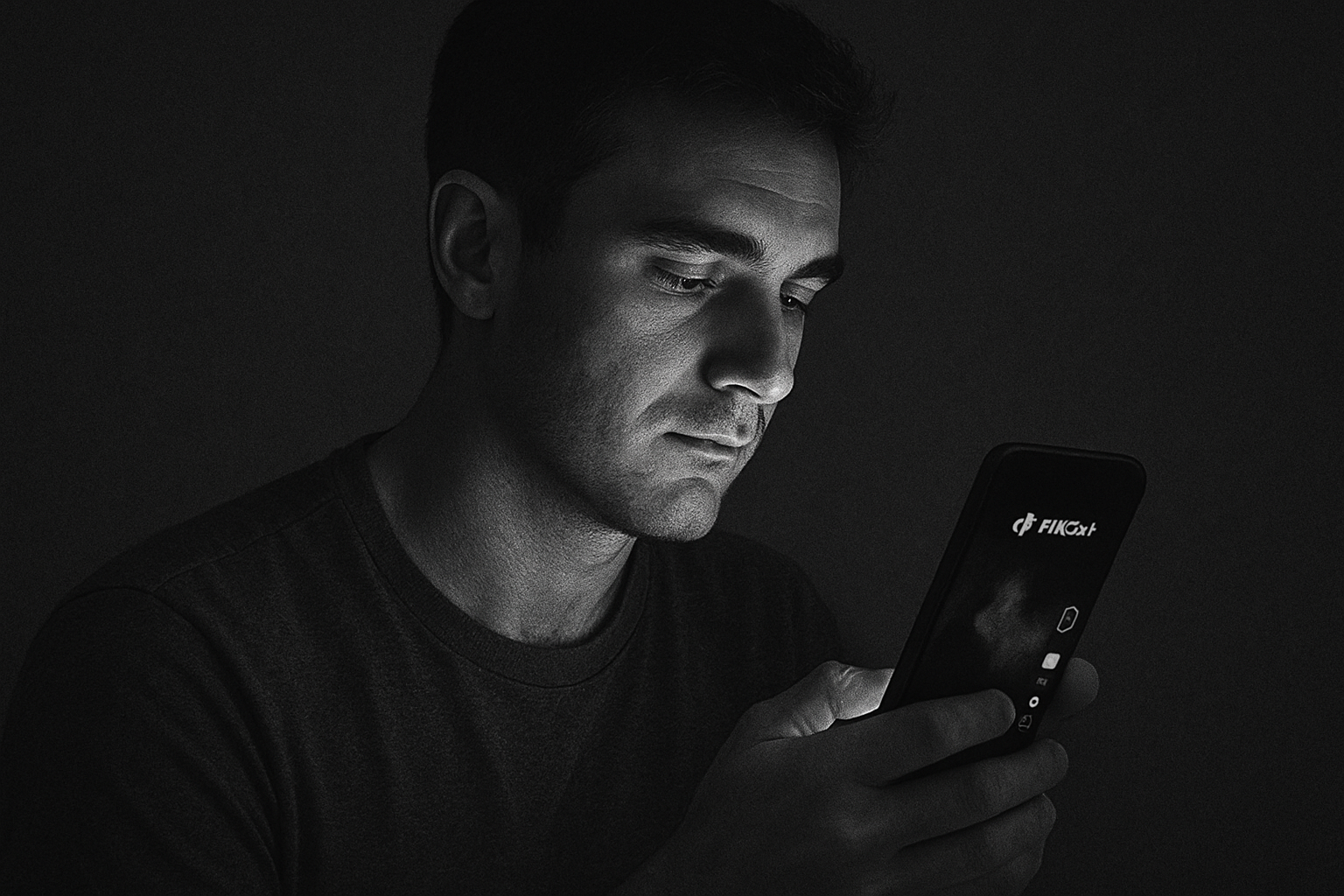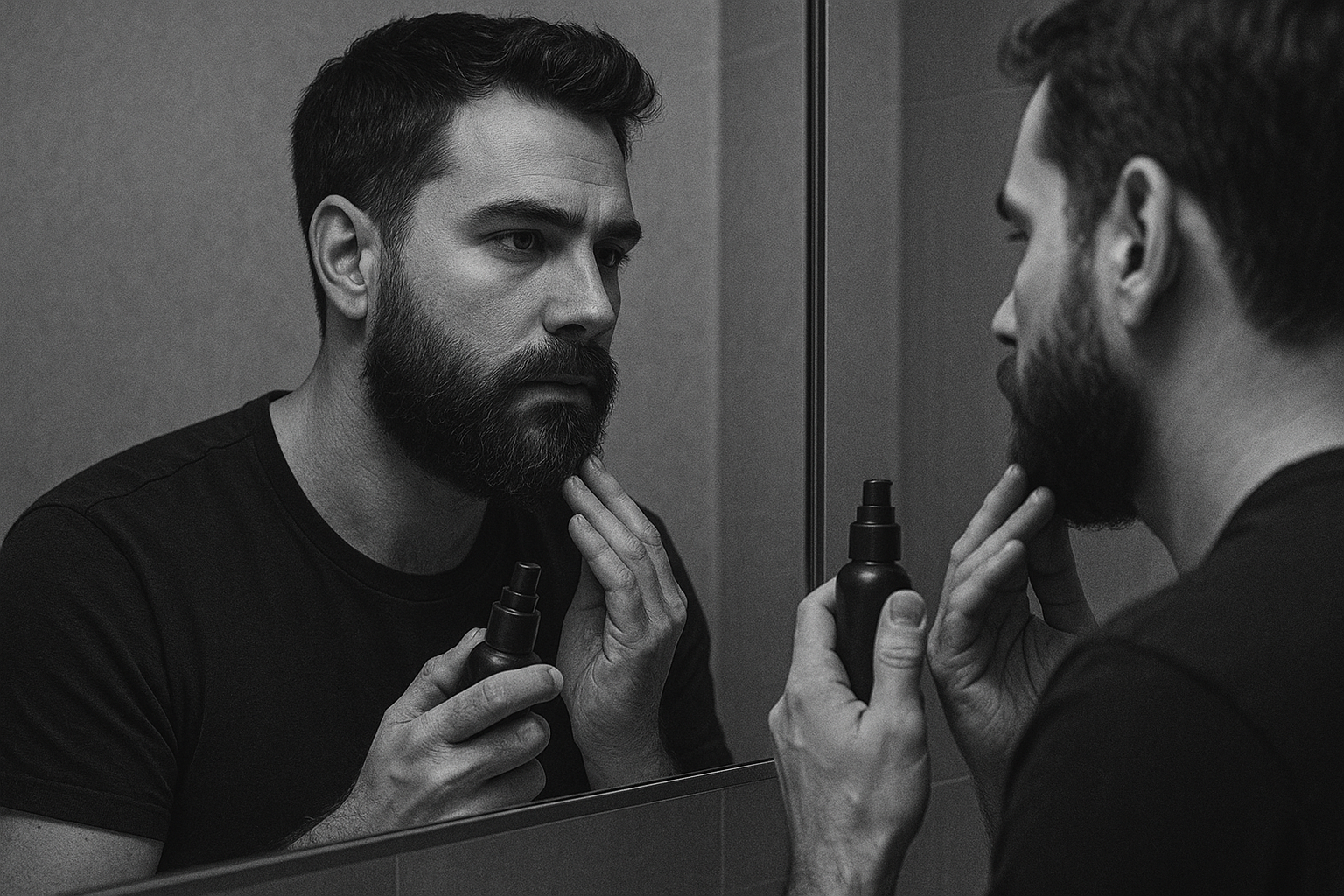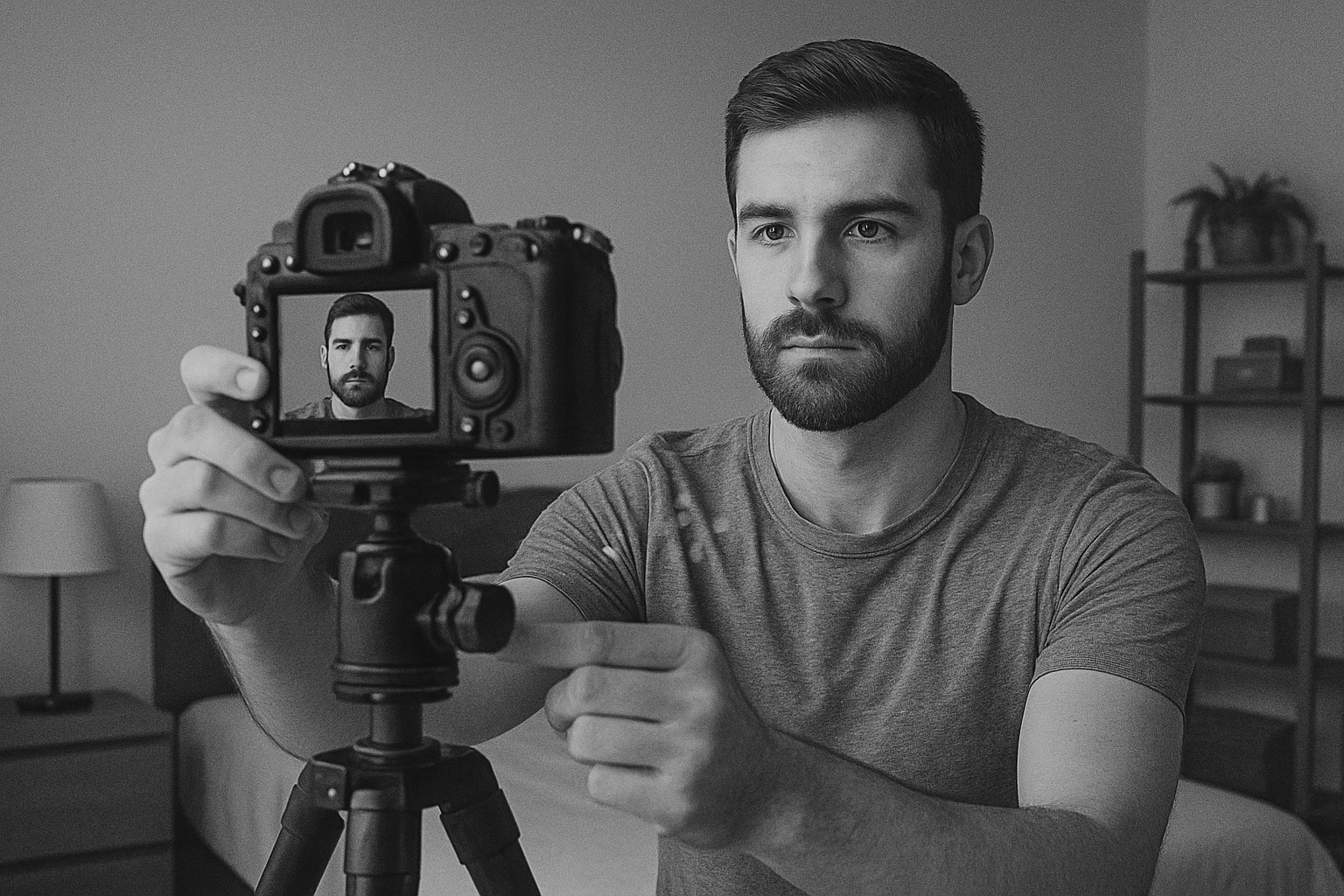Hot, Hard, and Hashtagged: The Marketing of Men
Modern media markets men as brands: hot, hard, and hashtagged. Between curated strength and digital performance, faith offers a counter-message that your worth isn’t built by visibility or muscle, but by the heart God sees. A cultural and biblical look at masculinity today.
The New Masculine Commodity
If you scroll through Instagram, sit through a sports commercial, or glance at a movie poster, you’ll see it everywhere. Men, packaged and presented like products. Muscles, money, and machismo are no longer just traits; they’re advertising assets. We’ve entered an era where masculinity isn’t simply lived, it’s branded.
You probably recognize the TikTok sound by @girl_on_couch (Megan Boni): “I’m looking for a man in finance, with a trust fund, six-five, blue eyes.” What started as humor became cultural commentary, a mirror to how society ranks desirability by income and image.
Or maybe you recall those iconic Calvin Klein ads from the ’90s, black and white, minimal, and hypersexualized. You know the one: a ripped man in his underwear staring straight into the camera. (Pssst… I once went on a date with a Calvin Klein model, and let me tell you, “ripped” doesn’t even begin to cover it.)
Print once shaped desire through pages, not pixels. Masculinity became a product long before it went viral.
Both examples reveal the same truth: media has created a bias for what men should look like, not just physically, but socioeconomically.
We’ve long discussed the objectification of women in media, but now we must face the intense pressure targeting men.
The modern male identity is increasingly defined by a hyper-specific, commercially driven trifecta: physical perfection (“Hot”), relentless achievement and stoicism (“Hard”), and constant digital self-promotion (“Hashtagged”). This new paradigm impacts male self-worth, relationships, and even faith.
The “Hot” Imperative (The Aesthetic Pressure)
“Sex sells” has been the advertising mantra for decades, but now, strength sells too. Think of Dior Sauvage commercials with Johnny Depp smoldering under desert skies, or Old Spice’s absurdly muscular “Man Your Man Could Smell Like” campaign. The male body has become shorthand for dominance and desirability, not dignity.
Marketing no longer sells utility; it sells transformation. Once, a razor was just a razor; it shaved your face. Now it promises confidence, success, and attraction.
Then, razors, deodorants, and aftershaves were about hygiene and practicality. Now, supplements, skincare, and style are about becoming stronger, sexier, and more successful.
Men aren’t just buying products anymore; they’re buying stories about who they could be. A protein shake isn’t just fuel; it’s “discipline in a bottle.” A gym membership isn’t just about health; it’s “hustle made visible.” The danger is that marketing doesn’t just sell a product; it sells the problem of not being enough.
This idea is everywhere in pop culture. Superhero franchises like Marvel’s Avengers and DC’s Justice League parade men with godlike physiques, teaching audiences that physical perfection equals moral authority. Movie posters, music videos, and even sports broadcasts project the same gospel of abs and aggression.
But this obsession doesn’t stay on screen. It follows men onto their phones. Scrolling through social media has become a quiet self-audit. You see Cristiano Ronaldo or Maluma in perfect lighting and start to wonder: Is my jawline sharp enough? Should I smile, or does that look less masculine? The simple act of scrolling becomes comparison. You become the art critic of your own reflection.
Late-night scrolls, chasing connection through the glow of a screen.
Scripture offers a counter-message. When Samuel was sent to anoint Israel’s next king, God told him, “The Lord sees not as man sees: man looks on the outward appearance, but the Lord looks on the heart” (1 Samuel 16:7, ESV). Strength in God’s eyes is never about biceps or beauty; it’s about integrity and inner life.
The Sculpted Standard has quietly become the male equivalent of the “Barbie body”. It’s airbrushed, curated, and often impossible without trainers, lighting, and editing. Fitness influencers on TikTok and Instagram push the illusion that perfection is earned, but never mention steroids, Photoshop, or self-doubt.
Men today are pressured to become both product and producer. They trade “strong and capable” for “lean and shredded,” forgetting that God created the body to serve, not to sell. As Paul wrote, “Do you not know that your body is a temple of the Holy Spirit within you... You are not your own” (1 Corinthians 6:19-20, ESV).
The “Hard” Imperative (The Performance of Masculinity)
The classic marketing playbook sells women as objects of beauty and men as objects of power. Enter machismo.
Aggression sells. Men fighting, winning, dominating. Domination becomes desire. From the roaring engines of truck commercials to the sweat-drenched faces of Rocky and Creed, the message is clear: real men conquer.
The Ford F-150 slogan “Built Ford Tough” doesn’t just sell a vehicle; it sells validation. Around 70–88% of pickup truck owners are male, and buying one often signals not transportation, but toughness. It’s masculinity on wheels, a reminder that “real men” are durable, not delicate.
Strength sold as identity. A Ford truck against a rugged backdrop symbolizes how advertising ties masculinity to endurance and control.
Even the beard has become a brand. Once a natural feature, it’s now a symbol of grit, rebellion, and traditional strength. Beard-oil ads don’t promise cleanliness; they promise confidence. The beard is no longer about grooming but identity, the modern armor of manhood.
Refined. Real. Reflective.
Elevate your everyday ritual with timeless style and intention.
But this kind of “hardness” isn’t just in ads. It’s in self-help books that preach dominance, podcasts that label compassion as weakness, and influencer coaches who turn hustle into holiness. Hustle culture has become religion. Men are told to wake up at 4 a.m., outwork everyone, and never rest.
Faith once tied provision to love and care, but marketing ties it to salary, silence, and status. Burnout becomes a badge of honor. Overwork becomes “grit.” Struggle becomes “character development.”
Ads sell watches, laptops, and leadership courses with one message: Real men don’t rest.
But Scripture directly confronts this lie. Jesus said, “Come to me, all who labor and are heavy laden, and I will give you rest” (Matthew 11:28, ESV). God never designed manhood to be a brand or a burden. True strength is shown in surrender.
“Man up” doesn’t just echo in locker rooms; it’s a consumer directive. It sells deodorants, trucks, colognes, and silence. The emotional cost is a generation fluent in strength but illiterate in softness.
Samson, the strongest man in Scripture, fell not because of weakness in his body but because of blindness in his spirit. David, meanwhile, showed a different kind of power, one that could cry, repent, and lead with humility. In God’s kingdom, brokenness is not failure; it’s formation.
Even the self-help industry has capitalized on masculine insecurity. It sells dominance, discipline, and “alpha energy,” but often leaves men alienated and anxious.
The “Hard” imperative sells control, but Scripture says, “The Lord is my strength and my shield; in him my heart trusts”(Psalm 28:7, ESV). Masculinity built on performance collapses under pressure. Masculinity rooted in Christ endures.
The “Hashtagged” Imperative (The Digital Showcase)
Welcome to the age of algorithmic masculinity, where being “man enough” means being seen enough.
Reflections of modern masculinity are curated, composed, and caught in grayscale.
Minimal light. Maximum story
On social media, the male body is curated, optimized, and rewarded. Platforms like Instagram and TikTok act as invisible editors, boosting what performs best: confidence, control, and perfect lighting for abs.
Influencer culture has turned everyday men into marketers. NFL stars film “grindset” montages, lifestyle creators post luxury watch collections, and Christian influencers wrestle with the balance between “authenticity” and aesthetics. Even vulnerability is branded: a photo of tears becomes content, a confession becomes engagement.
The algorithm favors visibility over vulnerability. TikTok has been documented to suppress users deemed “unattractive” while promoting conventionally beautiful ones (NPR). Internal reports revealed that videos flagged as “ugly, poor, or disabled” were suppressed in the For You feed.
Every post becomes a product pitch for the self. Every man becomes both marketer and merchandise.
In the glow of the lens is where creation begins.
A quiet moment of setup before the story starts
It’s not enough to be ambitious; you must look ambitious. Gym check-ins mean discipline. Office selfies mean drive. Travel photos mean freedom. Hashtags become digital credentials (#grindset, #motivation, #success).
But Jesus warned, “Beware of practicing your righteousness before other people in order to be seen by them” (Matthew 6:1, ESV). The media says visibility equals value. The Gospel says secrecy can be sacred.
When life becomes content, worth becomes quantifiable. Likes become liturgy. The brand becomes the altar. And men who stop posting fear invisibility more than inadequacy. Behind every thirst trap and hustle reel is the same hunger, not for fame, but for legitimacy.
The “Hashtagged” imperative turns life into a loop of performance and validation. In chasing visibility, men risk losing something sacred: the unposted self. Romans 12:2 (ESV) reminds us, “Do not be conformed to this world, but be transformed by the renewal of your mind.” Faith invites men to log off the performance and return to presence.
Faith Perspectives: More Than Muscles
Where marketing sells strength, faith reframes it.
Slow mornings. Honest thoughts. Gentle grace.
Worth is inherent: Men are valuable not for dominance or appearance, but because they are made in the image of God (Genesis 1:27, ESV).
Servanthood over status: Jesus modeled humility, not self-promotion (Philippians 2:3–4, ESV).
Redefining strength: True strength is found not in flexing muscles, but in showing restraint, compassion, and love (Proverbs 16:32, ESV).
Faith doesn’t reject strength or ambition; it redeems them. Muscles may inspire, but integrity transforms.
Beyond the Brand: The Truth About Strength
We live in a world where men are told to be “Hot, Hard, and Hashtagged.” But Scripture whispers a different story: that being seen isn’t the same as being known, and being strong isn’t the same as being whole.
The media says to perfect your image. God says to renew your mind.
When men trade reflection for projection, hustle for healing, and image for intimacy, they risk losing the very thing that makes them human: their heart.
Because at the end of the day, the truest form of manhood isn’t branded; it’s born again.
Quiet mornings. Open pages. A moment to reflect before the world begins.











